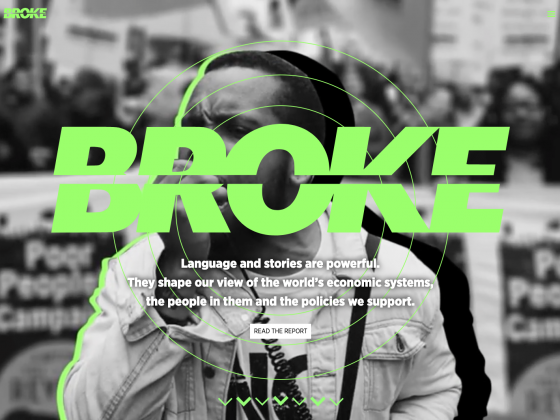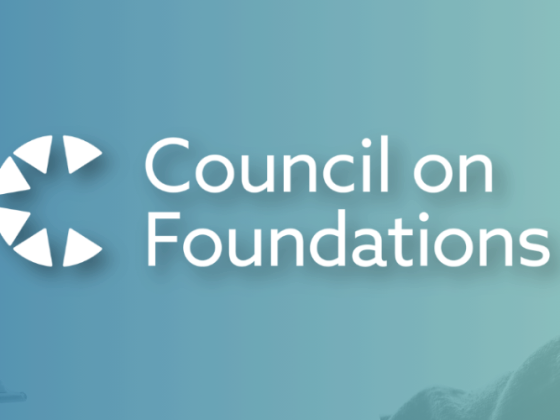In 2022, the Center for Public Interest Communications was engaged by Define American to assist with a report they were developing around the narratives on immigrant policy and communities.
The project, “Reimagining Immigration News: North Carolina’s Case for the Nation” focused on the local media ecosystem in North Carolina as proxy for what is happening across the U.S.
Define American, a national group looking at immigration issues, identified a challenge they saw of rising xenophobia and changing demographics, and the perspective that media need to cover all communities accurately so that people have the information to understand their neighbors.
The report blends traditional reporting from 50-plus interviews with stakeholders, with a content analysis conducted by the Media Ecosystems Analysis Group, as well as an audience survey of North Carolina news consumers conducted by the University of Florida’s Center for Public Interest Communications.
Subtle but significant: Centering news coverage on storytelling drives deeper audience engagement.
How the Center helped
The Center team activated experts in media effects, solutions journalism, message design and other disciplines. The Center provided an analysis of North Carolina media consumers and conducted a content design experiment that informed the findings.
The project was led by Center Director of Research Annie Neimand, Ph.D., and Research Associate Jack Barry, Ph.D., with assistance from Center Director Ann Searight, Director of Trainings and Programs Ellen Nodine and Managing Director Matt Sheehan. Neimand and Barry also activated the Center’s research network and engaged partner faculty from the UF College of Journalism and Communications, including:
- Juliana Fernandes, Ph.D., assistant professor in advertising
- Elizabeth ‘Lissy’ Calienes, director of the professional master’s program and lecturer in advertising
- Rachel Grant, Ph.D., assistant professor in journalism
- Kim Walsh-Childers, Ph.D., professor in journalism
- Frank Waddell, Ph.D., associate professor in journalism
Methodology
Audience Survey: The purpose of the study was to understand the relationship between beliefs and attitudes about immigrants and immigration and their trust in local and national news in North Carolina. Quota sampling was conducted via an online survey of 1,160 participants using a Qualtrics panel to mirror the population of North Carolina. The data were analyzed to examine the relationships between demographic and psychographic factors, trust in local and national news, and attitudes toward and knowledge of immigrants and immigration.
Hierarchical regression was used to test how demographic variables, media trust, institutional trust, moral values, cultural worldview, multicultural ideology, colorblind ideology, and systems thinking predict immigrant attitudes, immigration attitudes, immigration positions, support for immigration increase, and immigrant knowledge. Five total regressions were conducted – one for each outcome variable.
Audience Experiment: To explore the effectiveness of storytelling on attitudes and beliefs toward immigrants and immigration, the research team also recruited participants using a Qualtrics quota panel of people living in North Carolina. We excluded respondents who had liberal views on immigration as defined in a series of questions adapted from the organization More in Common’s report Speaking to Core Beliefs on Immigration report. For the in-group theory experiment, 179 participants were recruited. The experiment included too few people to mirror the demographics of the state. For the full experiment the demographics were: 65% female, 31%, male, 82% white/Caucasian, 13% Black/African American, 3% Latinx or Hispanic heritage, 2% Asian, 25% age 18-38, 45% age 39-64, and 30% age 65+.
To manipulate various aspects of the in-group theory elements, we used a real story (original condition) published in ABC-11 News (story linked here) and created two versions: a story containing only partial elements of the in-group theory (partial condition) and a story containing just facts ( just facts condition). For the partial condition story, any language that mentioned the characters of the story as in-group was removed. Examples of that were American, the NC community. For the condition of the just fact, language was changed to factual information, excluding any mentions of emotions. For the original condition, we maintained the story closely as it was originally published on ABC-11 News.
First, participants were asked to read an informed consent detailing the purpose of the study. After they consented to participate in the study, a series of pre-test questions were asked about their immigration knowledge and attitudes. After answering these questions, participants were randomly assigned to one of the three news stories. They were asked to take a moment to read the story in its entirety as they would be asked questions about it. After reading the story, participants answered a series of questions related to the story. The final block of questions asked about participants’ demographics and psychographic variables. Finally, participants were shown a debriefing statement revealing that some elements of the news story they read were modified for this study and a link that they could follow to read the original story.



